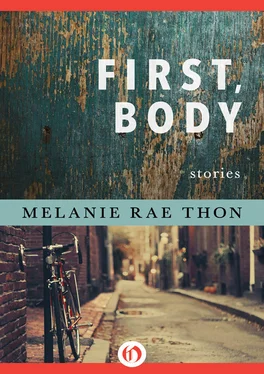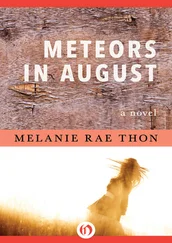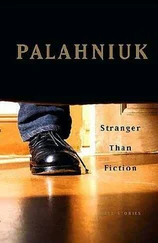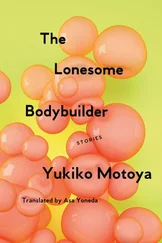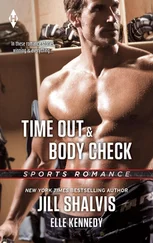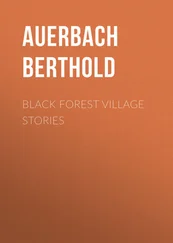He was behind me now, already lost.
I didn’t decide anything. I just drove. My hands were wet. Blood poured from my nose. I’d struck the steering wheel. I was hurt, but too numb to know. Then I was sobbing in my father’s arms. He was saying, Ada, stop .
Finally I choked it out.
I said, I hit something on the road .
And he said, A deer ?
This lie came so easily.
All I had to do was nod.
He wrapped me in a wool blanket. Still I shivered, quick spasms, a coldness I’d never known, like falling through the ice of a pond and lying on the bottom, watching the water close above you, freeze hard. He washed the blood from my face with a warm cloth. His tenderness killed me, the way he was so careful, the way he looked at the bruises and the blood but not at me. Every gesture promised I’d never have to tell. He said, You’ll have black eyes, but I don’t think your nose is broken . These words — he meant to comfort me — precious nose — as if my own face, the way it looked, could matter now.
He said he had to check the truck. He took his flashlight, hobbled out. I couldn’t stand it, the waiting — even those minutes. I thought, My whole future, the rest of my life, like this, impossibly long.
I moved to the window to watch. I tried to light a cigarette, but the match kept hissing out. I saw the beam moving over the fender and grille, my father’s hand touching the truck. I imagined what he felt — a man’s hair and bones. I believed he’d come back inside and sit beside me, both of us so still. If he touched me, I’d break and tell.
But when he came inside, he didn’t sit, didn’t ask what, only where. I could have lied again, named a place between these orchards and Bigfork, that safe road, but I believed my father was offering me a chance, this last one. I thought the truth might save us even now. I described the place exactly, the curve, the line of trees, the funnel of dust. But I did not say one thing, did not tell him, Look for a man in the grass .
He said, You sleep now . He said, Don’t answer the phone .
I had this crazy hope. I’d heard stories of men who slammed into trees, men so drunk their bodies went limp as their cars were crushed. Some walked away. Some sailed off bridges but bobbed to the surface face up. I remembered the man’s grace when we collided, the strange elegance of his limbs as he flew.
I believed in my father, those hands holding blossoms in spring, those fingers touching the fender, my face — those hands wringing the rag, my blood, into the sink. I believed in small miracles, Niles flying into the pond hours ago, Yellow Dog wading out.
I imagined my crippled father helping the dazed man stumble to the truck, driving him to the hospital for x-rays or just taking him home. I thought my father had gone back alone so that he could lift the burden of my crime from me and carry it himself, to teach me suffering and sacrifice, the mercy of his God.
Even if the police came, they’d blame the Indian himself. He’d reel, still drunk, while my father, my good father, stood sober as a nun.
For almost an hour I told myself these lies. Confession would be a private thing, to my father, no one else. He would decide my penance. I would lie down on any floor. I would ask the Holy Mother to show me how I might atone. I would forgive the priest his ignorance when wine turned to blood in my mouth.
I thought of the cherries my father found after the hail, the bowl of them he brought back to the cottage — I thought of this small miracle, that any had been left whole. We ate them without speaking, as if they were the only food. I saw my father on his knees again, the highway. He gathered all the pieces. Glass and stone became the body of a man. My father’s fingers pressed the neck and found the pulse. I knew I couldn’t live through fifteen minutes if what I believed was not so.
Two hours gone. I saw the bowl slipping from my hands, my faith shattered, cherries rolling across the floor. I saw the man more clearly than I had on the road, the impossible angles of his body, how he must have broken when he fell.
I heard my father say, Thou shalt not kill .
But this was not my crime. The Indian himself told me he accepted accidents, my drunkenness as well as his own. Then he whispered, But I don’t understand why you left me here alone .
I knew I should have gone with my father, to show him the way. I imagined him limping up and down that stretch of highway, waving his flashlight, calling out. On this road, wind had shape and leaves spoke. A bobcat’s eyes flashed. A coyote crossed the road. I felt how tired my father must be, that old pain throbbing deep in the bone.
I tried not to count all the minutes till dawn. I tried to live in this minute alone. I wanted to speak to the man, to tell him he had to live like me, like this, one minute to the next. I knew the night was too long to imagine while his blood was spilling out. I promised, He’ll come . I said, Just stay with your body that long. There’s a hospital down the road where they have bags of blood to hang above your bed, blood to flow through tubes and needles into your veins — enough blood to fill your body again and again .
I went to the bathroom, turned on the heater. I needed this, the smallest room, the closed door. I crushed the beads of lilac soap till I was sick with the smell. I heard the last crickets and the first birds, and I thought, No, not yet . I heard the man say, I’m still breathing but not for long . He told me, Once I sold three pints of blood in two days . He said, I could use some of that back now .
Then there were edges of light at the window and the phone was ringing. Jean’s mother, I thought. I saw my friend naked, passed out in the dirt or drowned in the pond. This too my fault.
The phone again. The police at last.
I must have closed my eyes, relieved, imagining questions and handcuffs, a fast car, a safe cell. Soon, so soon, I wouldn’t be alone.
I must have dreamed.
The phone kept ringing.
This time I picked it up.
It was the Indian boy. He said, I’ll slit your throat .
Past noon before my father got home. I understood exactly what he’d done as soon as I saw the truck: the fender was undented, the headlight magically whole. I knew he must have gone all the way to Missoula, to a garage where men with greasy fingers asked no questions, where a man’s cash could buy a girl’s freedom.
I couldn’t believe this was his choice. Couldn’t believe that this small thing, the mockery of metal and glass, my crime erased, was the only miracle he could trust.
He said, Did you sleep ? I shook my head. He said, Well, you should .
I thought, How can he speak to me this way if he knows what I’ve done? Then I thought, We, not I — it’s both of us now.
The phone once more. I picked it up before he could say Stop . The police, I hoped. They’ll save me since my father won’t. But it was Jean. Thanks a lot , she said. I’m grounded for a month .
Then she hung up.
Vincent Blew was long dead when he was found. The headline said, UNIDENTIFIED MAN VICTIM OF HIT AND RUN. One paragraph. Enough words to reveal how insignificant his life was. Enough words to lay the proper blame: “elevated blood alcohol level indicates native man was highly intoxicated.”
I thought, Yes, we will each answer for our own deaths.
Then there were these words, meant to comfort the killer, I suppose: “Injuries suggest he died on impact.”
I knew what people would think, reading this. Just one Indian killing another on a reservation road. Let the tribal police figure it out.
Читать дальше
